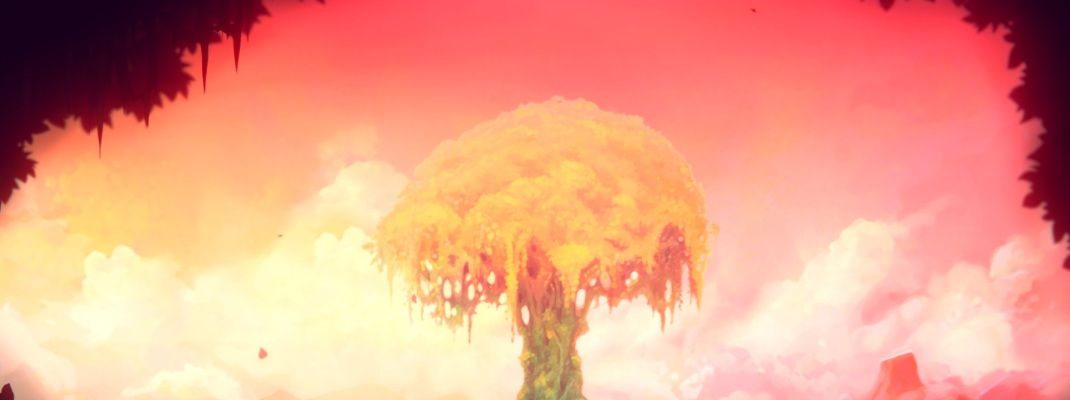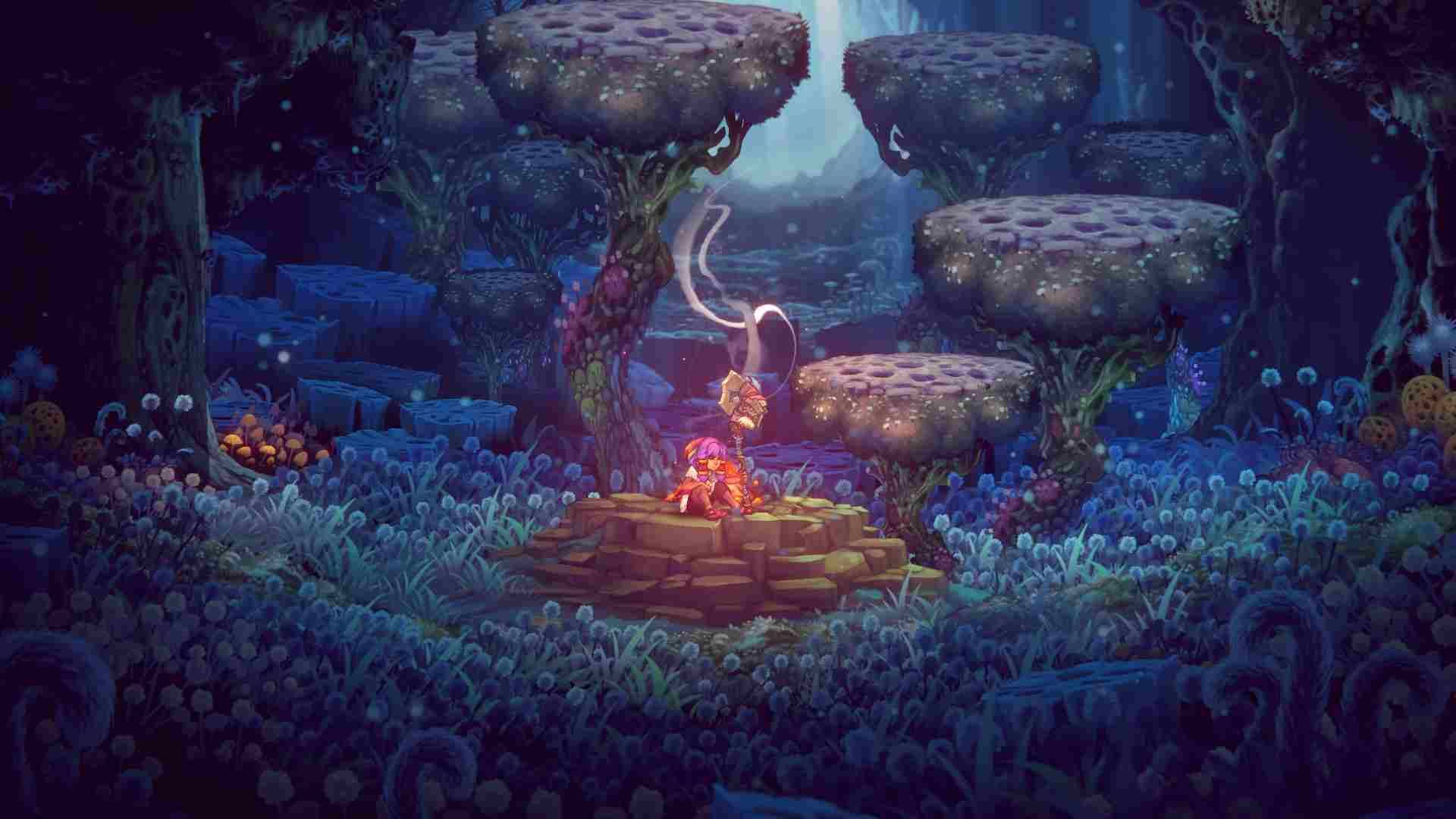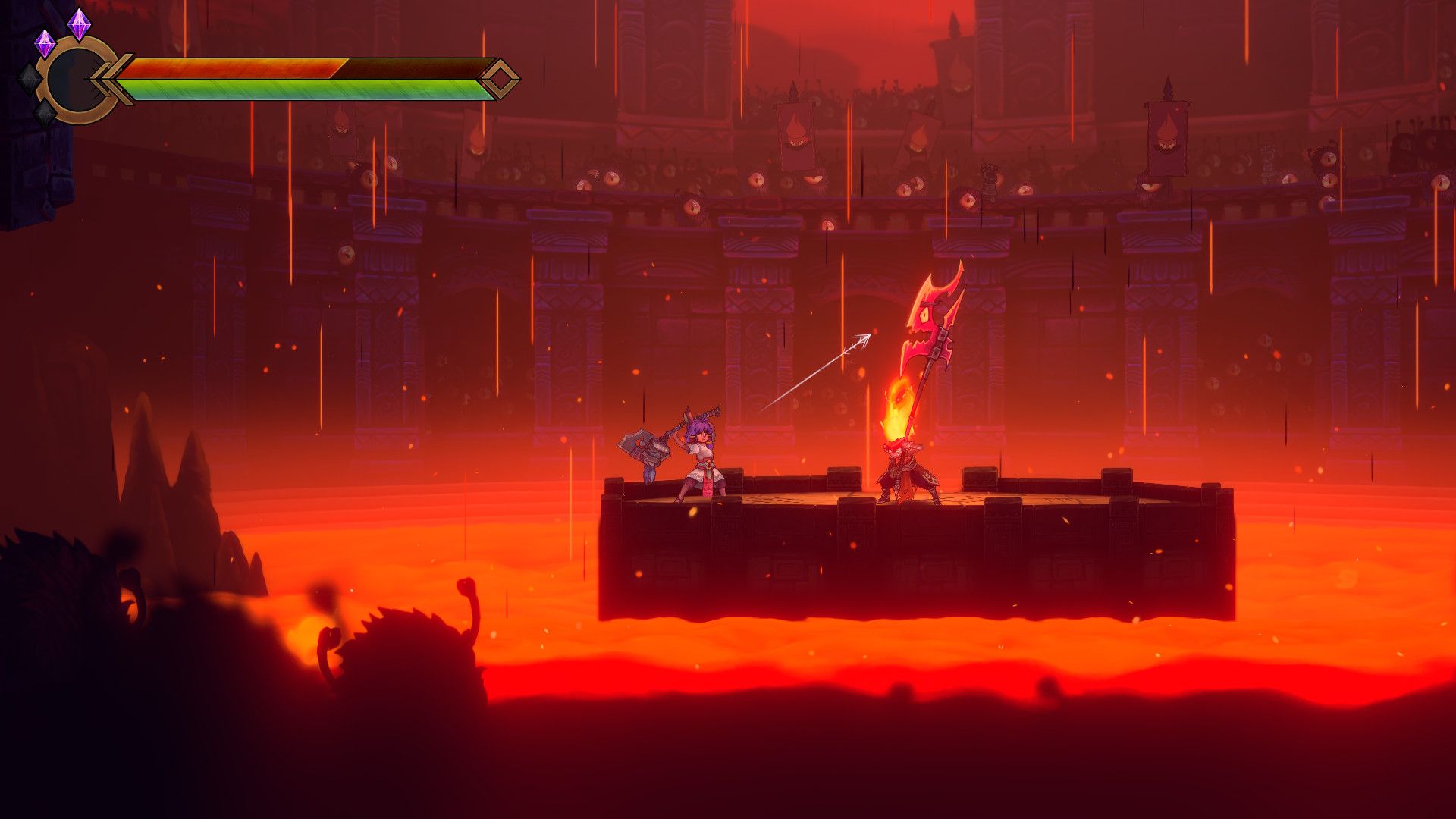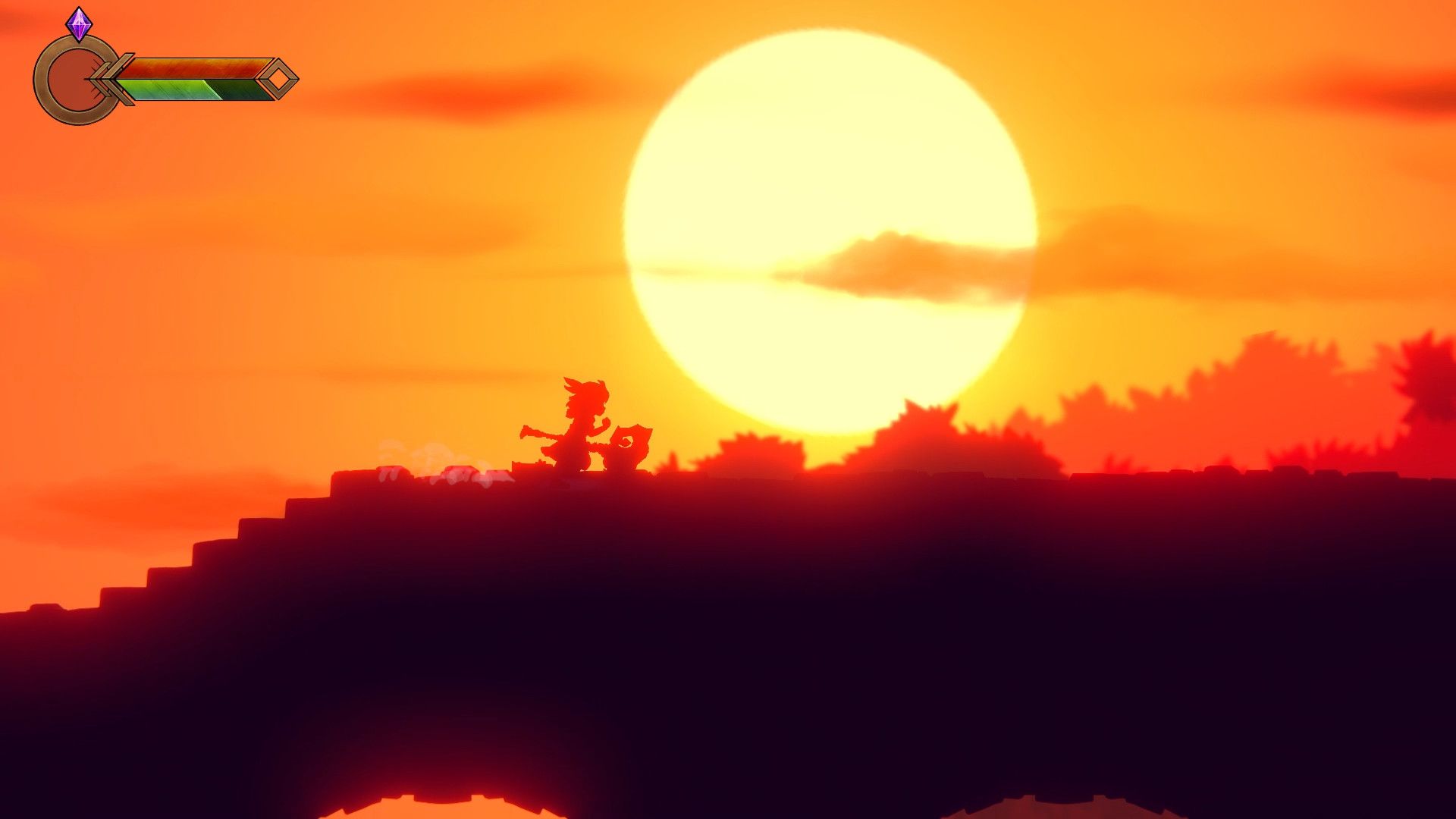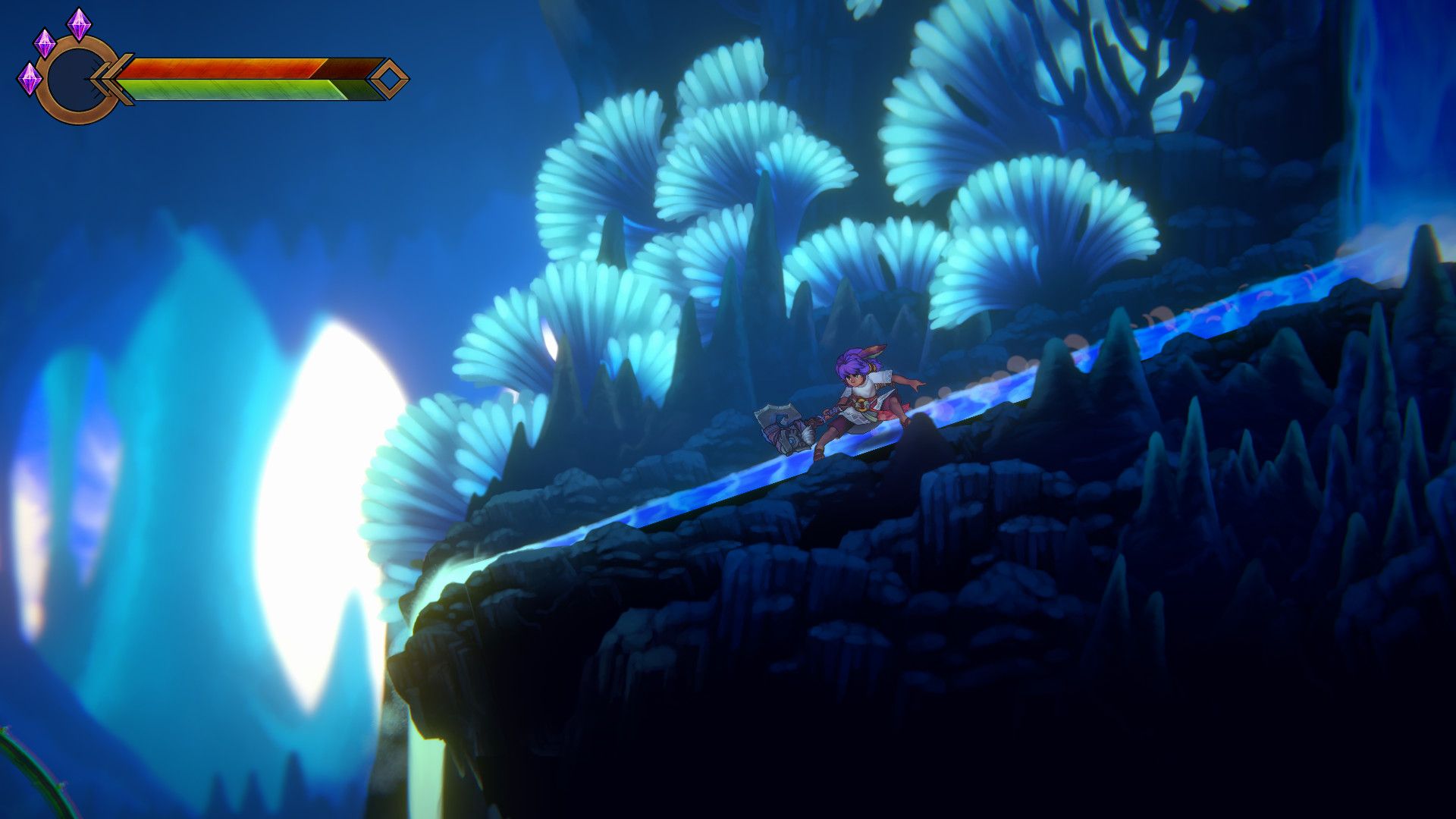It can be tough to create a game in a well-worn genre and have it stand out, but ITORAH is a Metroidvania that manages to accomplish that goal. With a Mesoamerican-inspired world, it immediately makes an impression visually, offering something unlike anything else on the market. Blending a highly-detailed art style that resembles a painting more than a video game alongside an action-platformer can be tough, as intricate art does sometimes have to lose some luster in the name of being able to properly time attacks and jumps, but that pitfall has been avoided here.
ITORAH goes against the grain of a sword or whip and instead used a disembodied head of an idol on a staff/axe combination as the weapon of choice. It's odd, but serves as a way to give our protagonist a sidekick without having an annoying sidekick character, so it winds up working out nicely. It enables there to always be a character there for exposition and character dialogue without adding another character on-screen. It's a far more organic way to get the benefits of back and forth conversation in-game without it getting in the way of the core action.
The core combat is a ton of fun and allows for quick combos with rapid button presses that can slice through foes in a snap. The blend of fast action and platforming combines with its gorgeous environments to create a memorable Metroidvania experiences. Unlike a lot of genre entries that focus on exploration and combat, ITORAH puts a lot of emphasis on the platforming side of things. This means that making use of her ability to duck and jump out of the way of enemy attacks is crucial because while the player can restore a bit of health at any time, it isn't going to fully replenish one's health immediately. The player still needs to tread carefully throughout tricky sections or else they'll meet their end much faster than they want.
Enemies can attack from afar and ITORAH makes their attacks easy to see by having normally lightly-colored backgrounds for them -- so there's a stark contrast. This makes it easier to time your evasion and move ever-closer to taking the enemy out. It's tempting to try and avoid attacking them to move on, but most platforming sections will require a mix of vertical and horizontal movement to gain ground, so you will either want to take foes out early or risk having them still be there in a minute or two anyway. The earlier you take them out, the less damage they can do throughout the whole sequence.
Itorah's journey is one that sees her visit many different areas and interact with new people, while also taking on massive bosses -- and their screen-filling nature makes them intimidating from the instant the battles begin. Boss patterns are just about perfect, managing to be both predictable but not too predictable. Bosses will usually alternate between a few different attacks and then mix them up at a faster speed when their health gets closer to the end. Defeating bosses results in a fantastic display of their bodies crumpling that makes the struggle against them much more satisfying.
ITORAH doesn't strive to do a whole lot new beyond its setting -- but that works in the game's favor overall. Instead of getting bogged down in too many systems, ITORAH focuses on delivering an action platforming-heavy Metroidvania that's perfect for those looking for a fairly relaxing entry in the genre. Most enemies can be taken out in a single combo and mid-air enemies are single-hit affairs. Boss battles can be tricky, but never get frustrating and every challenge can be overcome by slowing down and assessing it. There are challenging moments, but the game is forgiving and includes a lot of checkpoints to heal up and save, so there's never much progress lost upon death.
Having a user-friendly experience in this genre is cool to see and it makes ITORAH a fantastic game to get into if someone has become burnt out by so many Metroidvanias. It does a lot of things differently with its quality-of-life improvements for checkpoints and features a lush art style that makes it unique the second the game boots up. It's one of the most beautiful-looking genre entries in a long time and one that blends its beauty into the gameplay by ensuring that enemies and attacks are always easy to see and don't get lost in the on-screen chaos that can hurt other games.
The painted look to the world is reminiscent of Sega Saturn's ASTAL, only with much higher-resolution art, which is always a good thing. Even now, that painted look is something we haven't seen done much in gaming and it never fails to deliver a lush look to the world. Character detail is remarkable and you can read different expressions on Itorah's face during combat to see that she's stressed or notice her unwind by slumping over at a campsite to rest -- exhausted from the prior battle. There's a story told with lush animation here that helps bring her journey home to the player.
The world itself is gorgeous and full of detail that both makes the slower moments stand out while also driving home the importance of darker scenes. It's easy to get a false sense of security in a bright area with minimal enemies -- and then be thrown into an underground area with minimal light that adds challenge to everything. Thanks to that stark contrast between the world and Itorah herself, every in-game action can still be done, though -- whether it's attacking, jumping or ledge-grabbing. Everything can be done with a fair amount of ease no matter how dark the environment is due to there always being a visual contrast on display between the world and Itorah herself.
ITORAH's soundtrack is a mix of melodic and intense, with sharp sound design throughout. It's reminiscent of a more atmospheric Eveline Fischer composition from Donkey Kong Country 3, where it's both beautiful, but also terrifying. Nature sounds are integrated into the sound design and that helps each environment you explore stand out more. There will be an echo in caves that adds a sense of foreboding, while some outdoor areas will have rustling brush to help get across a more relaxing vibe that can change at a moment's notice. The sound design as a whole is impressive and works in concert with the gameplay and visuals to create a tense, exciting experience.
Closing Comments:
ITORAH is a fantastic Metroidvania and a must buy for those wanting an entry in the genre that tries new things. It's a forgiving game and one that looks absolutely stunning. There's nothing else in its class visually and more developers should look at what a unique, painted art style can do because it makes every action in both a character's face and body language stand out more and that's rare to see in a 2D game. It's clear that a lot of care went into ITORAH and it's paid off in spades with a rewarding and refreshing Metroidvania.

